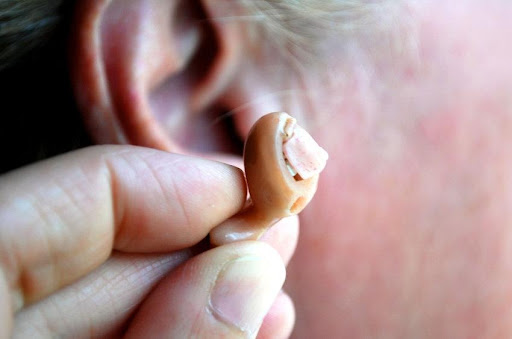
Hearing and Speech Changes in Seniors
We experience many changes as we age. Two common changes include hearing and speech changes. May is Better Hearing and Speech Month, making it a perfect time to learn about common hearing and speech changes that may develop with age.
Common Hearing Changes in Seniors
According to the National Institute on Deafness and Other Communication Disorders, one in three people between 65 and 74 experience hearing loss. Signs of hearing loss include having trouble hearing people on the phone, difficulty following conversations with more than two people, asking people to repeat themselves, difficulty hearing the television, or difficulty concentrating because of background noise. Some individuals may experience hearing loss without knowing it, leading to more severe conditions.
There are two general types of hearing loss:
- Sensorineural hearing loss- This type of hearing loss is usually permanent because of damage to the auditory nerve or inner ear.
- Conductive hearing loss- This type of hearing loss is usually reversible. It happens when sound waves can not reach the inner ear, usually because of fluid or earwax buildup. Conductive hearing loss can also occur if the eardrum is punctured.
Three hearing loss conditions tend to occur in older adults within sensorineural and conductive hearing loss.
- Sudden hearing loss- Also known as sudden deafness, sudden hearing loss is the rapid loss of hearing. Typically, it only affects one ear. The hearing can disappear all at once, or it may rapidly disappear over a few days. Sudden hearing loss can happen because of an infection, head trauma, inner ear disorders, poor blood circulation, or a neurological disorder such as multiple sclerosis.
- Presbycusis- Presbycusis is an age-related hearing loss where individuals gradually lose their hearing in both ears. It typically develops because of changes to the inner or middle ear. It’s also more common to develop in people continuously exposed to loud noises and those with heart disease and diabetes.
- Tinnitus- Tinnitus is when a person experiences ringing in one or both ears. Age-related hearing loss may cause tinnitus. It may also develop because of an ear injury or circulatory system problem.
Depending on the severity of the hearing loss, treatment options are available to slow the progress. Many seniors get hearing aids to help them hear more clearly. Some undergo surgery to fix an underlying problem, such as damage to a specific part of the ear. If you’re experiencing hearing loss, speak to your doctor as soon as possible. The sooner you address the hearing loss, the better your chances of saving your hearing.
Common Speech Changes in Seniors
The muscles in the neck and jaw affect how a person speaks. As we age, the muscles in the neck and jaw get weaker, resulting in mild changes to a person’s speech, such as the pitch or hoarseness of someone’s voice. These changes can also make it difficult for individuals to pronounce certain words or sounds in some cases. It can also lead to difficulty chewing and swallowing.
Some seniors may also experience speech changes related to hearing loss. If an individual has trouble hearing, they may start to speak louder, slower, or with different diction. Having trouble hearing may also cause difficulties in communicating, especially if there’s a disconnect between what they think they’re saying and what sounds they projected.
Seniors struggling with speech changes may benefit from speech therapy. In speech therapy, they’ll work with a licensed therapist to strengthen neck and jaw muscles and practice vocalizing sounds and words they have trouble saying. Speech therapy works best when seniors start it as soon as they notice changes in their speech.
How Visiting Angels can Help
If you’re a senior navigating hearing and speech changes and need assistance caring for yourself, the team at Visiting Angels can help. Our team of professional caregivers helps aging adults with various non-medical tasks such as light housekeeping, medication reminders, cooking, personal grooming, mobility assistance, and more.
Our Horsham office serves those in Horsham, Hatboro, Willow Grove, Ambler, Lower Gwynedd, Spring House, and the surrounding areas. If you’d like to learn more about our services, you can call us at 215.938.7202 or complete this online form.
